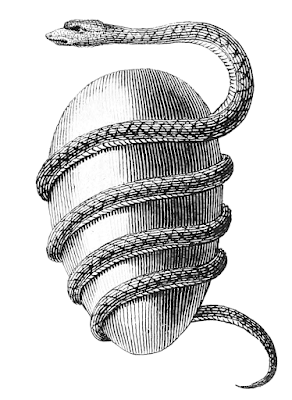Stephen Roney's Blog, page 192
July 23, 2021
What Equality Does and Does Not Mean
Here's a great explanation from To Kill a Mockingbird of what the phrase "all men are created equal," in the Declaration of Independence, is supposed to mean.
"One more thing, gentlemen, before I quit. Thomas Jefferson once said that all men are created equal, a phrase that the Yankees and the distaff side of the Executive branch in Washington are fond of hurling at us. There is a tendency in this year of grace, 1935, for certain people to use this phrase out of context, to satisfy all conditions. The most ridiculous example I can think of is that the people who run public education promote the stupid and idle along with the industrious—because all men are created equal, educators will gravely tell you, the children left behind suffer terrible feelings of inferiority. We know all men are not created equal in the sense some people would have us believe—some people are smarter than others, some people have more opportunity because they're born with it, some men make more money than others, some ladies make better cakes than others—some people are born gifted beyond the normal scope of most men.
"But there is one way in this country in which all men are created equal—there is one human institution that makes a pauper the equal of a Rockefeller, the stupid man the equal of an Einstein, and the ignorant man the equal of any college president. That institution, gentlemen, is a court. It can be the Supreme Court of the United States or the humblest J.P. court in the land, or this honorable court which you serve. Our courts have their faults, as does any human institution, but in this country our courts are the great levelers, and in our courts all men are created equal."
We seem to have lost this understanding--or have deliberately falsified it. Just as we have lost or falsified Martin Luther King Jr.s dream that children be judged "not byh the colour of their skin, but by the content of their character."
July 22, 2021
Requiem for the Sixties

The 1960s was a good idea that went terribly wrong; or at least, there was a good movement underlying it, that then over time got flooded out by a bad one.
As I saw it then and see it now, the Sixties were a rebellion against the materialism of modern society; behaviourism, demands for conformity, the growth of government and big business control; the rat race. This was headed in a spiritual direction, and ought to have ended in a religious revival. I really expected that to happen. The folk songs were religious, at the start of the decade; everyone was interested in Zen, TM, Eastern Religions. LSD was “mind expanding.” The Byrds publicly converted to Christianity, although no one seemed to notice. Bob Dylan publicly converted to Christianity. Jack Kerouac introduced us all to Zen, and declared himself a Jesuit general. George Harrison went Hindu. The “cults” appeared: the Hare Krishnas, the Children of God, the “Jesus freaks.” I saw it happening; it was starting to snowball.
Politics was there, but secondary. The main thing was to end the war and make drugs legal. That, and civil rights for blacks. But these are libertarian concerns; libertarianism is currently considered on the right. And perhaps was then as well. Kerouac claimed to support Taft; Dylan claimed to support Goldwater. Jerry Brown got hippie support, but this is because he embraced libertarianism: “small is beautiful.” Eugene McCarthy got hippie support, but on the single issue of ending the war.
There was a Marxist strand too—Marcuse and the New Left—but that was more something you heard about from Europe. That was no more politically mainstream within the hippie movement than “hip capitalism.”
Why did it all go weird? Why were the cults shut down? Why did it all get identified with Marxism, “political correctness,” big tech, and a resurgent demand for censorship, materialism, and conformity?
At the time, we blamed the “yuppies”; who toyed with the spiritual ideas, but ended up selling out. But the real poison, I suspect, was sex. What we used to call “The Pill” was a poisoned pill.
Perhaps some future generation will do better. Or perhaps such things cannot be left to the young, whose natural urges are so strong.
'Od's Blog: Catholic comments on the passing parade.
July 21, 2021
The Truth about Dragons

Just in case you can accept it now, let me sketch in the truth of “mental illness.”
We all live in bubbles. These bubbles are our assumptions about ourselves, the world around us, and our place in it. Call it our narrative. Outside it is the real world as it is.
We cannot, in principle, experience the real world directly. Kant, for one, has demonstrated this; so have Descartes, Berkeley, Plato. All we can do is strive to make our account of it as accurate as possible: to keep the bubble transparent.
When the bubble instead becomes opaque, like an egg shell, we have a “mental illness.”
Madness is a matter of being relatively disconnected from objective reality. Didn’t we always know this? Hasn’t modern psychiatry only obscured this?
There are two ways the bubble can become opaque. One is if we choose to believe lies, because we find them more to our liking that the truth. Another is that those around us have been lying to us.
These two possibilities define the two opposite types of mental illness. We might call them hubris and melancholia— to avoid common psychiatric terms, which come with distracting theoretical baggage.
Notice that the hubristic type, who spins lies, is likely to produce the melancholic type, who has been lied to.
Either condition will experience grief and anxiety. The hubristic will be constantly frustrated with and in paranoid flight from reality, which does not recognize to their wishes. The melancholic will be constantly frustrated by inconsistencies in the narrative, so that reality does not seem to make sense.
In either case, a sudden trauma can precipitate a crisis: that is, if reality suddenly disproves the accepted narrative. A crack appears in the cosmic egg. Then you get violent denial, cognitive dissonance, mental confusion, or psychosis.
The solution, in every case, is to preemptively doubt the entire narrative, and start again from first principles.
This is a terrifying thing to do. It is the ultimate leap in the dark.
Shall we?
'Od's Blog: Catholic comments on the passing parade.
Getting Frank about Frank

It is a grim meditation, but it is obvious to me that Pope Francis, with his recent motu proprio restricting the Latin Mass, knows he is doing wrong. He titles it, “defenders of tradition’; it is an attack on a traditional form. He says it is for greater unity in the church—he cannot believe this. Restrictions on the Latin mass caused the most recent schism in the church, the splitting away of the SSPX. He says it is to give bishops full power to decide for their own dioceses, and he does this by requiring of them that any new requests to perform masses in Latin must be referred to Rome.
These are the hallmarks of the guilty mind: to claim to do the opposite of what you are doing, is a tacit admission that you know what you are doing is wrong.
So why is Pope Francis doing something he knows is wrong?
I think we must accept that he has been a bad man all along; a wolf in sheep’s clothing.
He just had half his colon removed in a three-hour operation that the Vatican tried to keep secret. He may know he is dying.
When an unrepentant sinner dies, his instinct is to take the world with him: to do as much damage as he can on the way out. He does not want to be the only one suffering.
That is what this looks like: Francis wants to create a schism. He does not want to leave the church in good order for a successor.
'Od's Blog: Catholic comments on the passing parade.
July 17, 2021
The Street with No Name
The renaming of Dundas Street is an injustice to the memory and good name of Henry Dundas, and a frivolous waste of taxpayers’ money. On the other hand, we have an excess of places in this province named after Englishmen and Scotsmen who had little or nothing to do with Canada. It would be nice if we began to commemorate Canadian culture and history instead.
I expect the naming commission will only come up with a worse name. In all good sense, they should not choose the name of a politician, a journalist, or a businessman. To do so is to court divisiveness; these are, by career, controversial figures. They should not name it after anyone living; they might, after all, do something scandalous in the future. Nor should they name anything after anyone whose primary qualification is their race or gender; that is racism. A cultural figure would be best, and ideally someone whose presence in Toronto had a significant influence on the cultural life of the city.
Some possibilities:
Gould Street
Kurelek Street
Callaghan Street
Frye Street
McLuhan Street
A Dog Not Barking

Isn't it surpassingly strange that India, where the Delta variant began, has seen a sharp decline in infections, despite the fact that few have been vaccinated? While in the UK, where a high proportion have been vaccinated, the incidence of the Delta variant just keeps going up, now far higher than it was in India even at the peak? And isn't it strange that nobody comments on this?
The obvious reason is that India began unrestricted use of Ivermectin as a prophylactic. And the evidence seems to be that this cheap and common medicine is actually better protection against COVID-19 than a vaccination.
But on the down side, the profit margin is low ...
The Madness of King Lear

A correspondent’s son suffers schizophrenia, and is also prone to taking drugs, notably LSD. She laments it all as an “escape from reality.”
The truth may be more subtle.
To begin with, is an escape from reality, defined as our daily routine, always a bad thing? We are actually morally obliged to take regular escapes from this “reality. “This is the reason for Sabbath observance, for example. And there is a certain symbolism in the consecration of the wine.
Is taking a vacation an escape from reality? Is watching a movie? In a sense, yes. Both draw us out of our everyday surroundings; this allows us to relax. Simply by “getting away from it all,” we can often evaluate our problems from a new perspective, and perhaps even solve them. Trapped in the daily struggle, we cannot.
Yet to see taking a vacation to Rome, say, or watching a Shakespeare play, or attending mass, as escapism is also perverse: it sees only what we are leaving, not where we are going. It is like walking backwards on our pilgrimage.
It may be fairly common for people to drink alcohol for pure “escapism.” Alcohol dulls the senses, and slows reactions. We are probably less able to deal with our problems intelligently on alcohol. But experimenting with LSD is a different matter. People often think they have learned new things about reality from taking LSD.
I am not advocating LSD use. It is a blunt tool, and dangerous. But psychosis may be similar. The fact that this person, my friend’s son, when he is not experiencing schizophrenic symptoms, wants to take LSD, suggests that the psychosis is giving him some benefit. He is learning something from it, or at least escaping some intolerable daily situation.
Shakespeare, who must be considered one of the greatest psychologists who ever lived, suggests as much in King Lear:
Our foster-nurse of nature is repose,
The which he lacks; that to provoke in him,
Are many simples operative, whose power
Will close the eye of anguish.
…
The king is mad: how stiff is my vile sense,
That I stand up, and have ingenious feeling
Of my huge sorrows! Better I were distract:
So should my thoughts be sever'd from my griefs,
And woes by wrong imaginations lose
The knowledge of themselves.
In either case, simply trying to block the symptoms of schizophrenia, as we currently do, will be harmful. Schizophrenia looks like the working out of some problem.
'Od's Blog: Catholic comments on the passing parade.
Latin Doubleplus Ungood
Pope Francis has just issued new restrictions on the use of the Latin liturgy. Most strikingly, he will not allow it in any church.
Who else does it harm if some Catholics want mass in Latin?
Personally, I have no fondness for the Latin mass. I prefer to understand what is going on. I feel deeply uncomfortable at a Latin mass. But why drive others from the faith over such an irrelevant issue?
The church, after all, allows a variety of liturgies—Coptic, Ethiopian, Armenian, Greek, Melkite, Maronite, Malabar. Why shoud the Latin mass, alone, be so restricted? And if there is something wrong with celebrating the Latin Mass, doesn’t that say that the liturgy of the Catholic Church was wrong for almost two millennia?
This is hard to understand in any terms other than an exercise of raw power. Francis is not thinking of the interests of Catholics, or of the Church. He is thinking of how to punish those he views as his enemies inside the church.
Like so much Francis has done, this only spreads confusion and conflict.
'Od's Blog: Catholic comments on the passing parade.
July 15, 2021
Cuba Libre?
I’m going out on a limb: I think the Cuban government is going to fall.
In the past, Cuba could rely on Soviet support in the face of unrest. Then it could rely on Venezuelan. Possibly it can now rely on Chinese or Russian support, but I think it has burned through its nine lives and will not look worth the cost to any such sponsors any longer.
I am impressed too with how quickly the uprising spread.
If I were the US, I’d be actively helping the rebels behind the scenes. A collapse of the Cuban government would be a big boost for American prestige, and the prestige of this administration. People suggest the last thing Biden wants is a flood of Cubans into Florida, all eager to vote Republican. Even if he is that cynical, the best way to prevent that may soon be to overthrow the Cuban government.
If Cuba flips, it may have repercussions for other remaining Communist regimes. The only ones left: Vietnam, Laos, and China.
July 14, 2021
Putting Descartes before the Horse
 Bishop George Berkeley
Bishop George BerkeleyI pointed out to a correspondent of late that Descartes, to arrive at his famous statement “I think, therefore I am,” had assumed a stance of radical doubt. He then realized that the one thing he could not doubt was his own thoughts, whether or not they referred to anything outside themselves. And if he was experiencing thoughts, then he existed too. It took him several further steps to come to the conclusion that the physical world existed.
And that conclusion was soon successfully challenged by Berkeley. Berkeley points out that there is no logical necessity to posit the existence of any physical world that corresponds to our perceptions, our thoughts. Therefore—Occam’s Razor—it is improper to do so.
I think I am correct in saying that nobody has successfully challenged Berkeley on that point. Most of us just live our lives ignoring it.
My correspondent reacted badly.
Of Descartes, she wrote, “Descartes could NOT have affirmed rationally that the brain did not exist! All humans who think and behave normally have brains. No humans who do not have brains can think or behave normally. THAT much science was known to Descartes.”
Of Berkeley, she wrote that he was “delusional and lost in the ego-centricity of his right-brain so that he can no longer interact rationally with the rest of the human and physical world.”
What I see here is “cognitive dissonance”: it is a common cognitive dissonance. It is why we commonly just ignore Berkeley. The idea that the reality of the physical world is open to question is so unexpected to us Moderns that we cannot assimilate it. We simply refuse to entertain the thought.
Meaning we are all mad.
It is demonstrably true that the existence of the physical world is debatable; because it has been debated throughout history. Aside from Descartes and Berkeley, Plato and the Neoplatonists doubted its existence. It was only shadows of puppets reflected on the wall of a dimly-lit cave. The thing was so obvious to Plato that he did not even think to make an argument. And Plato has been pretty well-respected throughout the history of Western philosophy. The medieval school of philosophy called “Realism” rejected attention to the physical world in favour of concentrating only on what was “real”—that is, the ideal forms, which exist only mentally.
The Buddhist world, similarly, considers the world of the senses “maya”: “illusion.” “The power by which the universe becomes manifest; the illusion or appearance of the phenomenal world.” So does Taoism. So does Hinduism. The same insight is critical to understanding Canadian indigenous people’s traditional beliefs: far from being modern ecologists, they did not believe that nature was real. We in the modern West are actually in a minority in assuming the importance of the physical world.
Now, realizing that the physical world may not be real is pretty mind-expanding. Real or not, it is an important insight that our experience of the spiritual is immediate and undeniable, but our experience of the physical is indirect and dubious. “Scientism”—our modern pseudo-religion—has this backwards. It is a profoundly inadequate account of reality. Much or most of what we call “mental illness,” I suspect, is caused by this inadequacy. Mental illness happens when we discover our actual experience does not conform with the official world view, or we see flaws and inconsistencies in the matrix, and do not know how to interpret it. It is vital to have a bullet-proof world view—to see the world as it truly is. Our “scientistic” world view has too low a ceiling. Leonard Cohen speaks of a “spiritual catastrophe."
Even if there is a world that corresponds to our sense-perceptions, we have a second, epistemological problem: how does it correspond, and how can we know that correspondence? Does our experience of the colour “blue,” for example, tell us anything meaningful about the external quality “blue”? Or is the real blue a chuckling demon blinking in semaphore? Do you perceive what I perceive as blue, as what I would call red if I saw with your eyes? For the first thing is mental, a thought in the mind. The second thing remains, in principle, unknown in its essence.
Philosophy is more fun than LSD. And safer.
'Od's Blog: Catholic comments on the passing parade.



